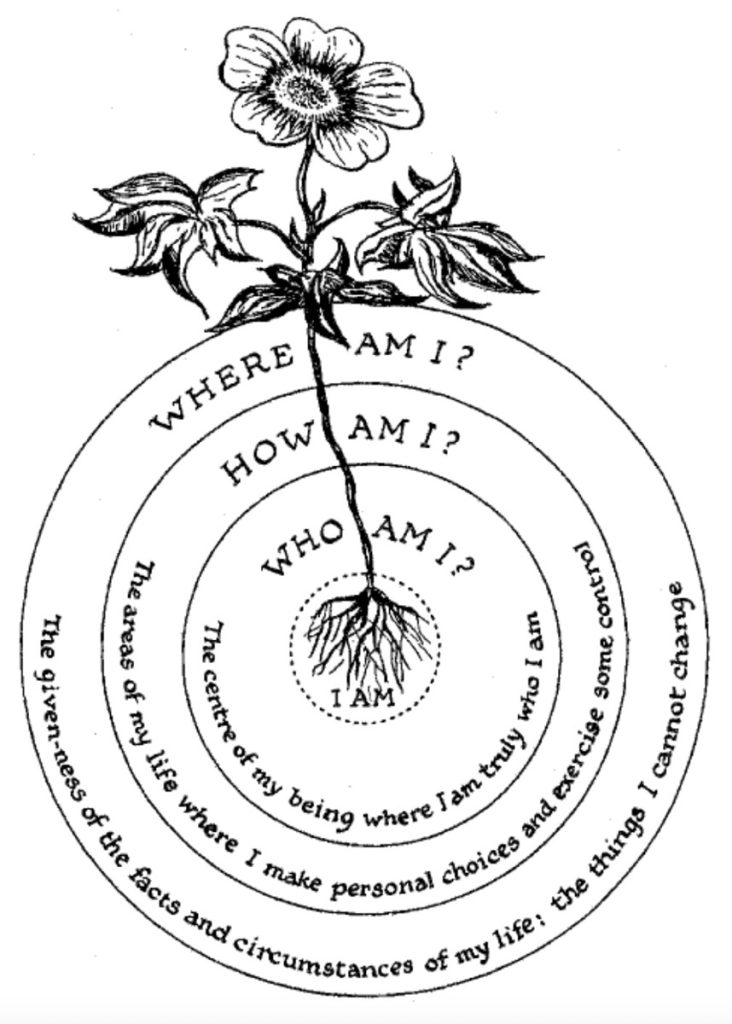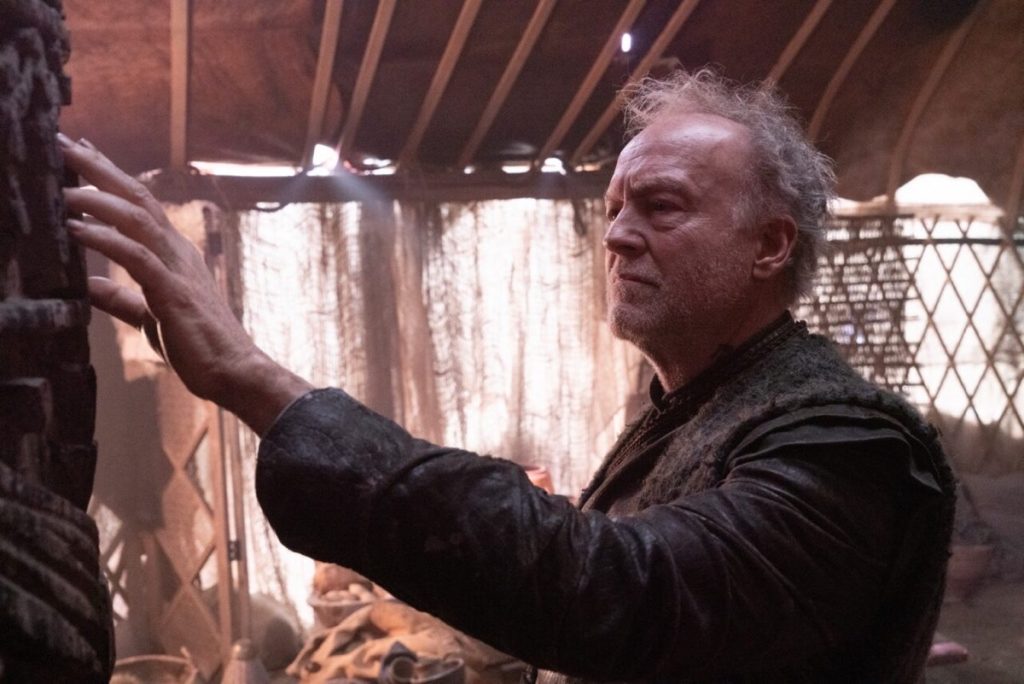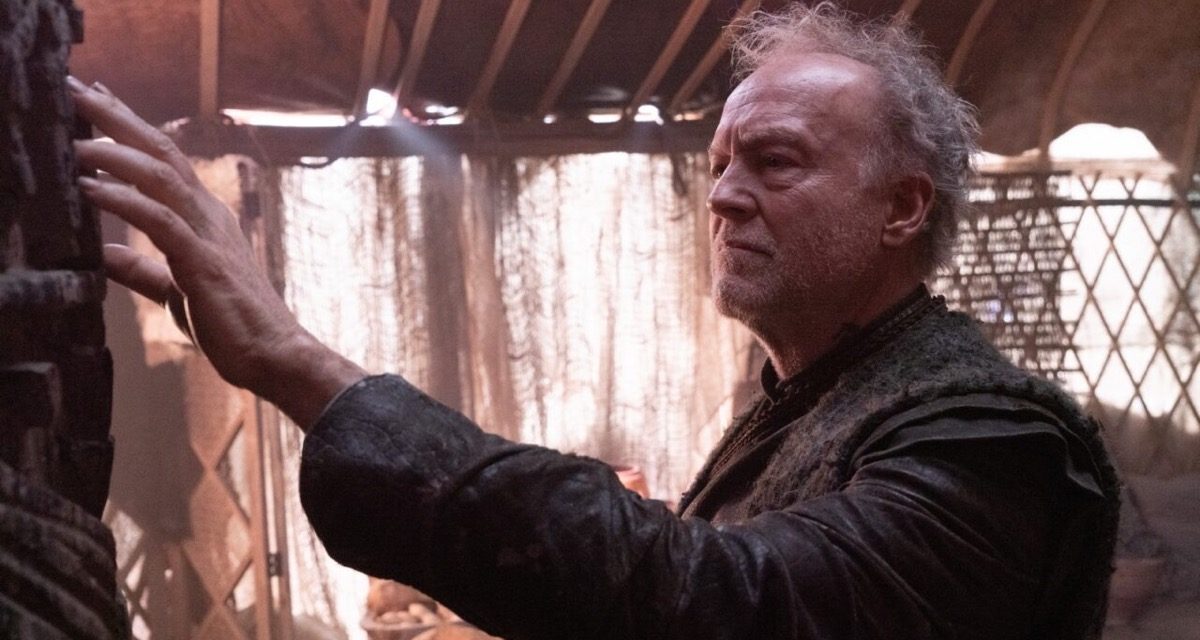The latest iteration of the Star Trek franchise, Strange New Worlds, is a prequel to the original series, with Captain Christopher Pike at the helm. The series has self-contained episodes with all the moral and ethical quandaries I love so much about Star Trek. One season 2 episode, “Among the Lotus Eaters”, speaks to the Ignatian significance of emotion, feelings, desires, and identity: the deep-down-things you might say.
In the episode, the Enterprise is called back to Rigel VII, a bronze age planet they visited five years earlier on an exploration mission. But after being ambushed by the local Kalar people they had to evacuate quickly. Unfortunately, three crew members were left behind. This left “cultural contamination”, which is in opposition with the Federation’s Prime Directive, not to interfere with the natural evolution of a society.
 When they return, they find that one of their left behind crew members made himself king. The planet has a secretive ruling class and a class of people “from the field” who are labourers. They discover that the radiation from an ancient asteroid creates memory loss and the Enterprise away-team on the planet begins to lose their memories and forget who they are. The crew, which includes Captain Pike, encounters a kind local Kalar named Luq, who offers the crew his help, encouraging them to stay in the present moment. Luq works in the stone quarry where the Enterprise crew are sent to work as well. Each night, he tells them, they experience “the forgetting” where the day’s memories are lost. Luq shows them a tattoo on his arm that tells him what his name is, which also identifies the house he lives in. He has a totem, the tattoo, and pictures to help him know who he is.
When they return, they find that one of their left behind crew members made himself king. The planet has a secretive ruling class and a class of people “from the field” who are labourers. They discover that the radiation from an ancient asteroid creates memory loss and the Enterprise away-team on the planet begins to lose their memories and forget who they are. The crew, which includes Captain Pike, encounters a kind local Kalar named Luq, who offers the crew his help, encouraging them to stay in the present moment. Luq works in the stone quarry where the Enterprise crew are sent to work as well. Each night, he tells them, they experience “the forgetting” where the day’s memories are lost. Luq shows them a tattoo on his arm that tells him what his name is, which also identifies the house he lives in. He has a totem, the tattoo, and pictures to help him know who he is.
“We don’t lose the deeply known things,” he says, like walking or talking. But they do lose the memory of who they are.
Captain Pike has a pendant around his neck, a gift from someone he loves. As he holds it, he senses its importance, that it’s a gift. “Yes, that’s how it’s done,” Luq says. “Emotions can guide you where memories can’t.”
Going Within

Silf’s illustration of the concentric circles
Here is where Ignatian spirituality can comment. Ignatian writer Margaret Silf presents an image of three concentric circles that represent something about who we are. The outer “Where” circle represents the circumstantial things and facts of our lives: where we live, what we do, how old we are, what we’re good at. We might also place memories in this circle, the stories and happenings of our lives. The next level in is the “How” circle, which has to do with the choices we make, how we go about our life, where our freedom and agency are used. Memories might also live here too, as they also contain decisions and choices of the past. But the circle in the centre is about “Who I am”. This core is where God resides, where our true self lives. It’s this Who centre that the crew of the Enterprise begin to tap into.
Now because the Enterprise is in the planet’s orbit and exposed to the radiation, the whole crew on board eventually forgets who they are. How do you get out of that kind of major forgetting?
On the planet, Captain Pike and the rest of the away-team begin to discover these core ideas of who they are. The doctor realises that he is a healer. When La’an, one of his crewmates, gets injured he has the sense that they are friends.
As La’an lay dying Luq tells them that he sees this forgetting as a kind of blessing. They don’t have to suffer the pain and anguish of her death. That memory will go away. With no past, there are no burdens. “That sounds like a nightmare,” says Pike. Luq shows on his totem that the people in the palace are those who remember and can plan the future for those who forget. Pike is moved to go there and find their memories. “You are guided by your emotions,” Luq says. “The totem teaches that we live in each moment. Embrace them.”

The Details Matter
Pike and his crew set off to the palace where they believe their memories are stored. They offer to retrieve Luq’s memories but he refuses. He has a tattoo on his arm that he inked over. He senses an absence and a loss. Love cannot be taken by the forgetting, but he doesn’t want to know the details. It won’t ease his sorrow, he says. He’s too afraid of the pain in knowing the truth.
When the crew storms the palace and seizes the king, their memories slowly return. The palace protected its inhabitants from the memory-suppressing radiation. Luq also decides to come into the palace and his memories return. He discovers that he once had a family. “The story of your life—the details—they matter,” he says. “Maybe some memories are worth the pain of others,” La’an remarks.
Inner Compass
The story fits into Silf’s three circles in a lovely way. The crew uses their emotions to guide them deep within, to discover an inner truth. Margaret Silf writes, “[Feelings] are the first pointers to what our hearts are most deeply desiring or most deeply fearing…” Ignatius knew that feelings and emotions had something to say, and we ought to listen. It’s almost as if feelings bubble up and down between the Who centre and the surface of the Where circle—and we need to discern their source, what they say, and what they point to. “Emotions are not facts,” Spock says at one point. True, but they are a kind of compass. If facts sit on the outer Where circle, emotions and feelings are mixed in with the decisions and choices of the How circle.
As for memories, they are the thing that points to the thing deep within. They are not the thing itself, just like a photograph is simply a two-dimensional instant that points to a real lived moment in time. Without their memories, the Enterprise crew had the seed of their identity inside them. As Ignatius prays in his Suscipe prayer, “Take, O Lord, and receive … my memory.” Even when we surrender our memories, our true selves in God remain. The Who centre, Silf says, is “still intact and unharmed.”
Captain Pike’s pendant becomes a symbol for those “deep within” things that guide us back to who we are, our “inner compass” as Margaret Silf calls it. We can see that between the three levels of Silf’s Where-How-Who circles, there is a flow, a bubbling of emotions and feelings amidst the memories and facts. But deep down, the things in the core of our Who centre cannot be taken by any kind of forgetting. “Give me only your love and your grace,” Ignatius prays to God. That will always remain deep within.
More Star Trek posts:
Listen to the podcast version of this post…








